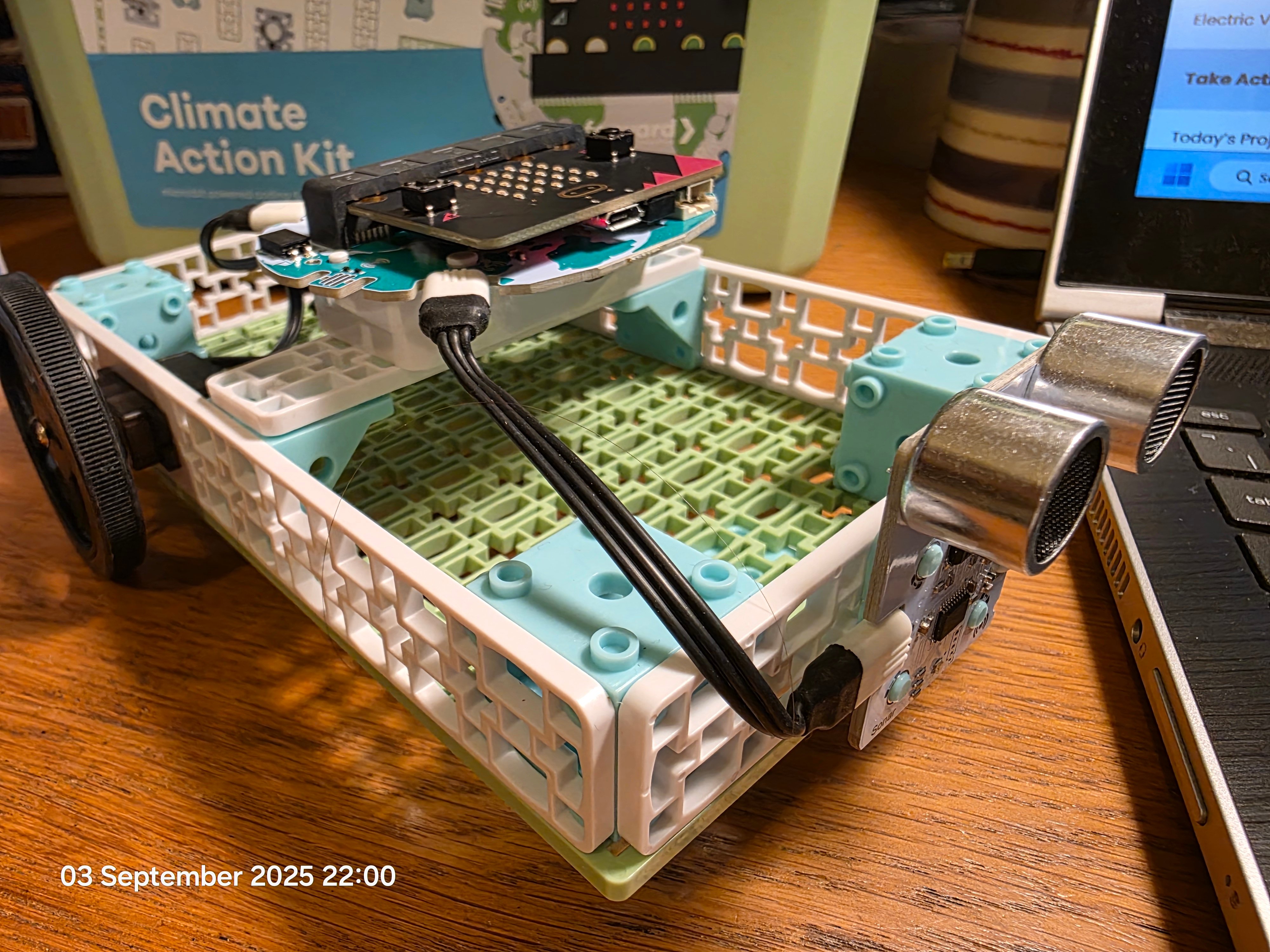04 September 2025
Climate Action Kit from Forward Education

Having been subject specialist in Computing since September 2020, one of the big perpetual challenges is identifying affordable resources for teaching physical computing, suitable for the widest possible age range as well as engages, enthuses and enriches STEM-centric learning given the timetable pressures schools face. I think as my sixth year in role started, my search might be finally over with the Climate Action Kit from Forward Education.
Through a combination of social media contacts and real World connections when the team from Forward Education came to the BETT Show in 2024 and were exhibiting close by to where I was a Kahoot! Ambassador, Forward Education have produced a range of really robust components which perfectly compliment and extend the application or learning about programming the micro:bit as a controller.
As I’ve said before, https://www.computingatschool.org.uk/forum-news-blogs/2025/july/code-club-1/ my favourite was their #Charge rechargeable battery packs which enables children as young as aged 3 to make use of the micro:bits as wearable tech when the micro:bits are programmed as pedometers. The movement data can be made more sophisticated by pairing four micro:bits to the CreateAI portal https://createai.microbit.org/ for those children curious enough to want to wear a device on each arm and leg.
The Climate Action Kit and the other accessories in the range such as the Solar Energy Kit panel with their Danish brick like properties are robust enough for children as young as aged 7 to assemble sets of complex components such as touch, sonar and line sensors to motors to create incredible contraptions within minutes of unboxing. The Solar Energy Kit and Climate Action Kit electric vehicle each took less than an hour from assembly to programmed into working device.
But beyond the build and code experience, the learning about the contraptions that have been created is so extensive and deep, as I said on X, the range of learning outcomes covered is actually brain busting. There’s obviously the Computing objectives of computational thinking and specifically the use of sequencing, selection and iteration. There’s also the digital and media literacy of demonstrating the ubiquity of technology and how embedded systems are created. Whilst the MakeCode editor for programming the micro:bit to the Forward Education breakout board might seem very elementary, the declaration of variables and functions requires an ability level of being able to use abstraction, decomposition and algorithmic thinking techniques expected of young teenagers. Given my experience of preparing students for school leaving qualifications, the Forward Education Climate Action Kit projects are perfect for demonstrating the application of logic gates of three inputs into two outputs.
The Forward Education lesson library is so comprehensively written and mapped to the United Nations Sustainable Development Goals for each of the (current, September 2025) 23 projects. Although the lesson library has both a suggested age range for every project and time guide, the teaching material is so rich and well structured that each project could be accessible for learners as young as aged 7 with application to students aged 16 for sequences of STEM-centric learning that include concepts from Physics and Environmental Science which could each take a sequence of six hour long sessions. For those who are not following any STEM-centric pathway, the Climate Action Kit projects make perfect enrichment opportunities and suitable as an investigative enquiry leading to the British Science Association CREST Silver Award for those aged 14+ and Gold for 16+.
So with a Forward Education Climate Action Kit, just add some micro:bits and STEM-centric students…






Discussion
Please login to post a comment